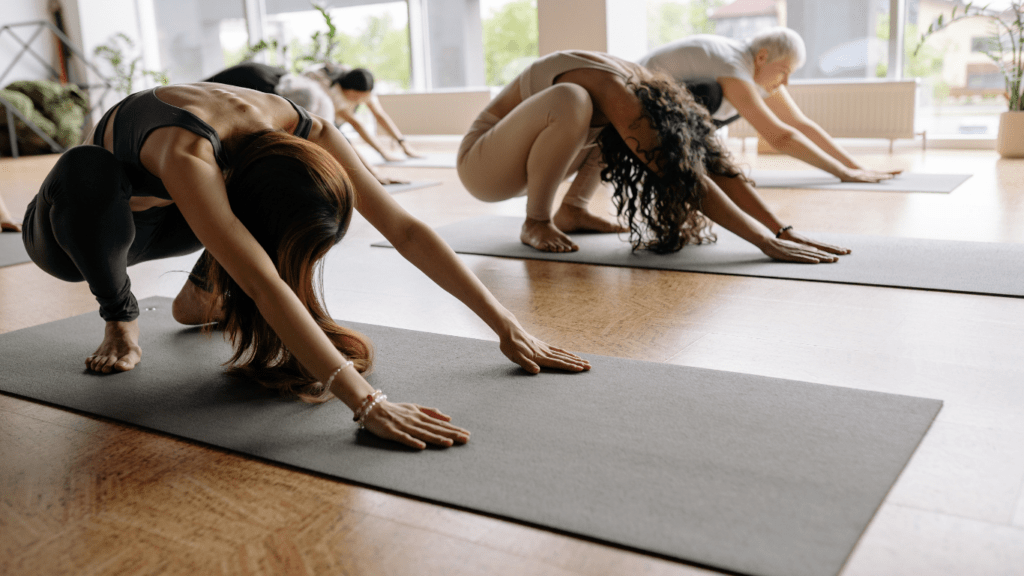Feeling overwhelmed by the demands of daily life is something many of us can relate to. In my experience, finding moments of calm amidst the chaos can be a game-changer. That’s where meditation comes in.
It’s not just about sitting cross-legged and chanting “om.” It’s a powerful tool that I’ve personally found incredibly effective in reducing anxiety and feelings of being overwhelmed. Through my own journey with meditation, I’ve discovered how this practice can help quiet the mind, soothe the soul, and bring a sense of clarity to even the most hectic of days.
In this article, I’ll share insights on how incorporating meditation into your routine can be a transformative way to manage anxiety and overwhelm. So, if you’re ready to take a step towards a more peaceful mind, keep reading.
Understanding Anxiety and Overwhelm
Navigating through the tumultuous waves of anxiety and overwhelm can be a challenging endeavor, especially in today’s fast-paced world. When I consider the roots of these feelings, I recognize that they often stem from the constant demands and pressures of modern life.
The ceaseless notifications, deadlines, and responsibilities can create a breeding ground for stress and unease within us. In my own experience, I’ve found that anxiety tends to manifest as a persistent state of worry or fear about the future, while overwhelm emerges when the present moment feels too burdensome to handle.
These sensations can be exhausting, both mentally and physically, leading to a sense of depletion and emotional fatigue over time. Moreover, it’s essential to acknowledge that anxiety and overwhelm can vary in intensity from person to person.
Some individuals may face mild, fleeting episodes, while others grapple with more severe and prolonged instances. Regardless of the degree, these feelings can significantly impact one’s quality of life and overall well-being.
Recognizing the nuances of anxiety and overwhelm is the first step toward addressing and managing these emotions effectively. By cultivating awareness around the triggers and patterns associated with these states, individuals can begin to develop strategies for coping and find reprieve amidst the chaos.
Meditation, with its ability to bring focus and serenity to the mind, emerges as a valuable tool in this journey towards emotional equilibrium.
Benefits of Meditation
Meditation offers numerous benefits that can significantly improve overall well-being. Here are some key advantages of incorporating meditation into your daily routine:
Stress Reduction
Meditation is a powerful tool for reducing stress levels. By practicing meditation regularly, I’ve experienced a noticeable decrease in my stress and anxiety levels.
It helps me cultivate a sense of inner calm and relaxation, even amidst challenging situations.
Improved Emotional Regulation
Through meditation, I’ve learned to regulate my emotions more effectively. It has enhanced my ability to remain calm and composed during stressful moments.
Meditation teaches me to acknowledge my feelings without being overwhelmed by them, fostering emotional resilience and stability.
Types of Meditation for Anxiety
I find various types of meditation beneficial for managing anxiety. One effective method is mindfulness meditation.
Mindfulness Meditation
In mindfulness meditation, I focus on being present in the moment without judgment. By paying attention to my thoughts, sensations, and surroundings, I can acknowledge anxiety triggers without getting overwhelmed.
This practice helps me increase self-awareness and cultivate a sense of calm amidst chaos. Mindfulness meditation has been a cornerstone in my journey to reduce anxiety and enhance emotional well-being.
How to Start a Meditation Practice
Exploring meditation can be a transformative journey in managing anxiety and overwhelm. In my experience, beginning a meditation practice was a game-changer in finding inner peace amidst life’s chaos.
Here’s a step-by-step guide on how to start your meditation practice effectively:
- Create a Sacred Space: Designate a quiet area in your home where you can meditate without distractions. This space should evoke a sense of calmness and tranquility, aiding in your meditation experience.
- Set a Regular Routine: Establish a consistent time each day to meditate. Whether it’s in the morning to start your day with clarity or in the evening to unwind, a regular practice routine can help make meditation a habit.
- Start with Short Sessions: Begin with brief meditation sessions, even just five to ten minutes a day. Gradually increase the duration as you become more comfortable with the practice.
- Focus on Your Breath: Concentrate on your breath as you meditate. Pay attention to the inhalation and exhalation, using it as an anchor to keep your mind present and centered.
- Embrace Guided Meditations: Consider using guided meditation apps or recordings to support your practice, especially if you’re new to meditation. These tools can provide structure and guidance as you navigate your meditation journey.
- Be Patient and Compassionate: Understand that meditation is a skill that develops over time. Be patient with yourself and approach your practice with compassion, allowing room for growth and self-discovery.
Starting a meditation practice doesn’t have to be overwhelming. By following these steps and staying dedicated to your routine, you can lay a strong foundation for managing anxiety and overwhelm through the power of meditation.
Meditation Techniques for Overwhelm
Exploring meditation techniques tailored to combat overwhelm is essential in today’s fast-paced world. When facing a whirlwind of tasks and responsibilities, it’s crucial to have effective strategies to regain inner peace.
In my journey, I’ve discovered specific meditation practices that have been instrumental in managing overwhelm and anxiety. These techniques not only help in quieting the mind but also provide a sense of clarity amidst chaos.
Grounding Meditation
Grounding meditation is a powerful technique that centers your thoughts and emotions, anchoring you in the present moment. By focusing on your connection to the earth, either through visualization or physical sensations, you can alleviate feelings of being scattered or mentally jumbled.
This practice helps in regaining stability and a sense of balance when overwhelmed by external stressors.
Body Scan Meditation
Body scan meditation involves systematically directing your attention to different parts of your body, observing any tension or discomfort present. This technique is particularly beneficial for releasing physical manifestations of stress and overwhelm.
By acknowledging and letting go of bodily tension through focused awareness, you can achieve a profound sense of relaxation and relief from the burdens of the day.
Loving-Kindness Meditation
Loving-kindness meditation, also known as Metta meditation, cultivates feelings of compassion and goodwill towards oneself and others. When overwhelmed by negativity or self-criticism, this practice can be incredibly transformative.
By generating feelings of love and kindness towards oneself and extending these sentiments to others, you can shift your perspective from overwhelm to a place of emotional warmth and acceptance.
Visualization Meditation
Visualization meditation involves creating mental images or scenarios that evoke feelings of peace, calm, and serenity. During moments of overwhelm, visualizing a tranquil setting or engaging in a guided visualization exercise can offer a mental escape from stressors.
By immersing yourself in positive imagery through visualization, you can recalibrate your mental state and alleviate feelings of anxiety and pressure.
Mantra Meditation
Mantra meditation utilizes repetitive words or phrases to focus the mind and induce a meditative state. This technique is helpful for calming a racing mind and redirecting intrusive thoughts that contribute to overwhelm.
By softly repeating a chosen mantra, you can create a sense of rhythm and flow that promotes mental clarity and relaxation, making it easier to navigate challenging moments. Incorporating these meditation techniques into your daily routine can be transformative in managing overwhelm and cultivating inner peace amidst life’s demands.
By exploring these practices and finding what resonates with you, you can develop a personalized approach to meditation that serves as a powerful tool in reducing anxiety and overwhelm.



 Wellness Coach
Jake Beet is a certified wellness coach at Aura Nature Spark, specializing in personalized nutrition and fitness plans. With a background in exercise science, Jake is dedicated to helping individuals achieve their health goals through tailored programs that emphasize balance and sustainability. His engaging and supportive approach empowers clients to make positive lifestyle changes that last. Jake believes that wellness is a journey, and he is passionate about guiding others toward a happier and healthier future.
Wellness Coach
Jake Beet is a certified wellness coach at Aura Nature Spark, specializing in personalized nutrition and fitness plans. With a background in exercise science, Jake is dedicated to helping individuals achieve their health goals through tailored programs that emphasize balance and sustainability. His engaging and supportive approach empowers clients to make positive lifestyle changes that last. Jake believes that wellness is a journey, and he is passionate about guiding others toward a happier and healthier future.
